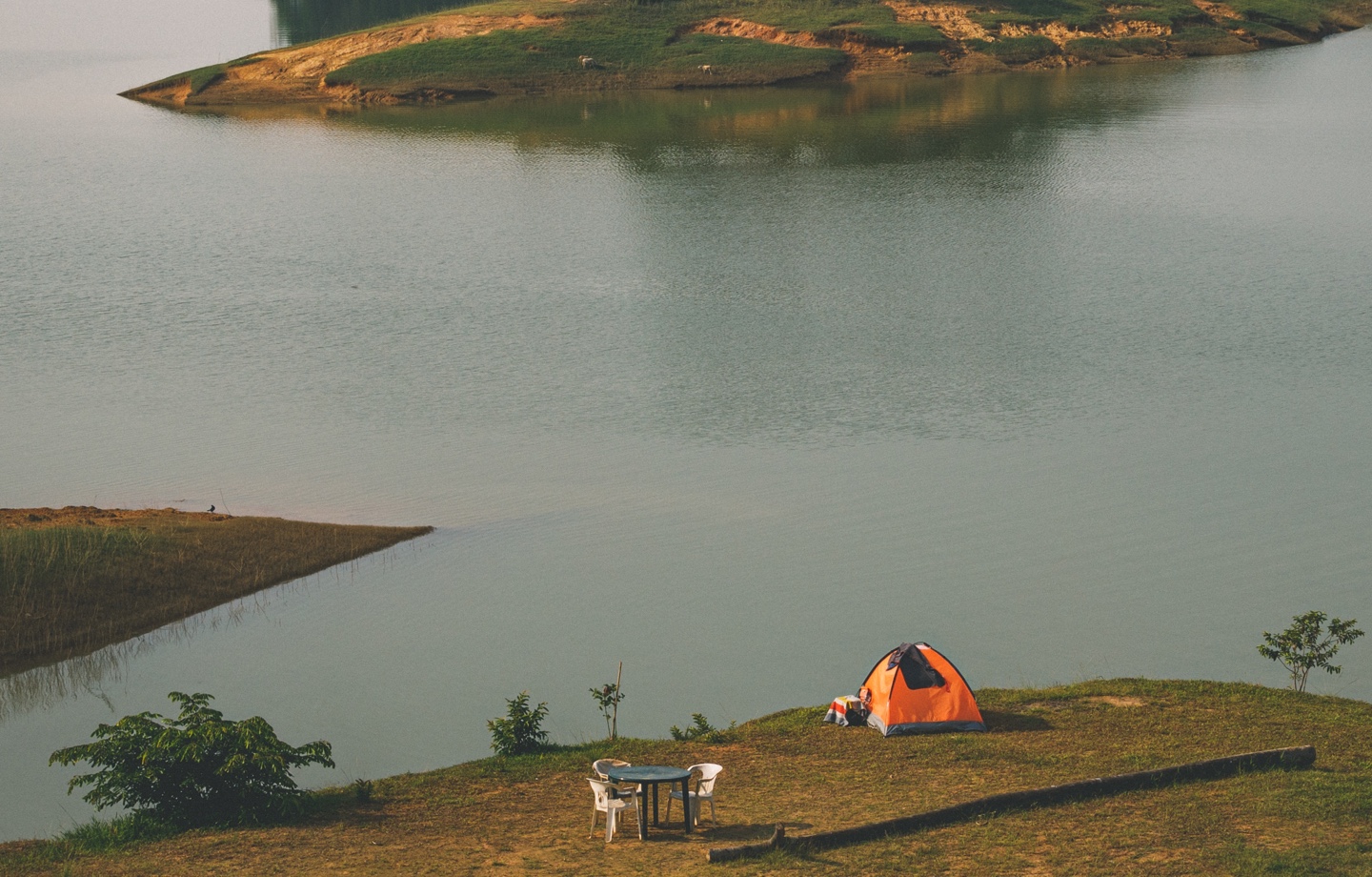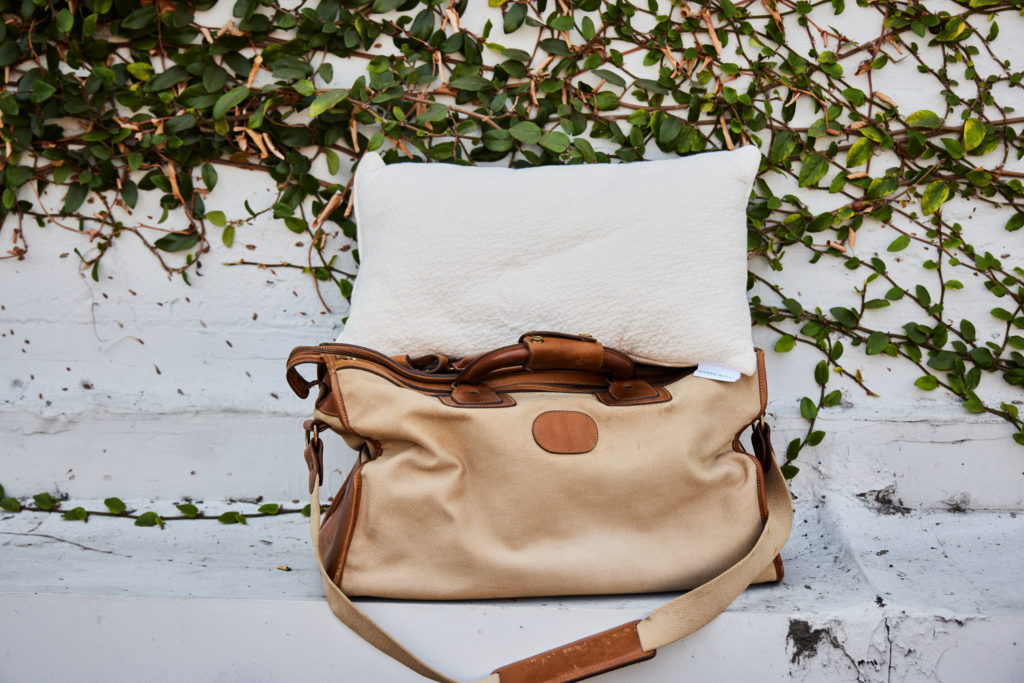Sleeping well while camping can be challenging. Here’s how to beat the heat and get quality zzz’s outdoors.
As a kid, I spent summers camping in Klamath, California, with my family. We’d drive up the North Coast and through redwood forests to a grassy RV resort. But we didn’t have a motorhome with luxe living quarters and a queen size bed like our camp neighbors. We had tents or the bed of a truck.
With a river view and an ocean beach just a short boat ride away, this campground is where I made s’mores, watched my grandfather gut and clean his catches of the day, and learned to pitch a tent.
There, I got some of my best rest tucked into a sleeping bag on chilly nights. But what about falling asleep in warmer climates? Climate change is drastically raising global temperatures. Carbon pollution traps extra heat near Earth’s surface. According to a data analysis by Climate Central, summer temperatures in 229 U.S. locations have risen by an average of 2.4 degrees F since 1970, with some places warming by more than 5 degrees F.
In more than half of locations, people are sweating through at least two more weeks of above-normal summer temperatures than they did previously. The more heat we’re in, the more at risk we are of heat-related health issues, such as dehydration, heat exhaustion, and heat stroke.
While you may be rethinking your next camping trip, it’s still possible if you avoid extreme temperatures. Here are tips from experienced campers to help you stay cool and sleep better in a tent.
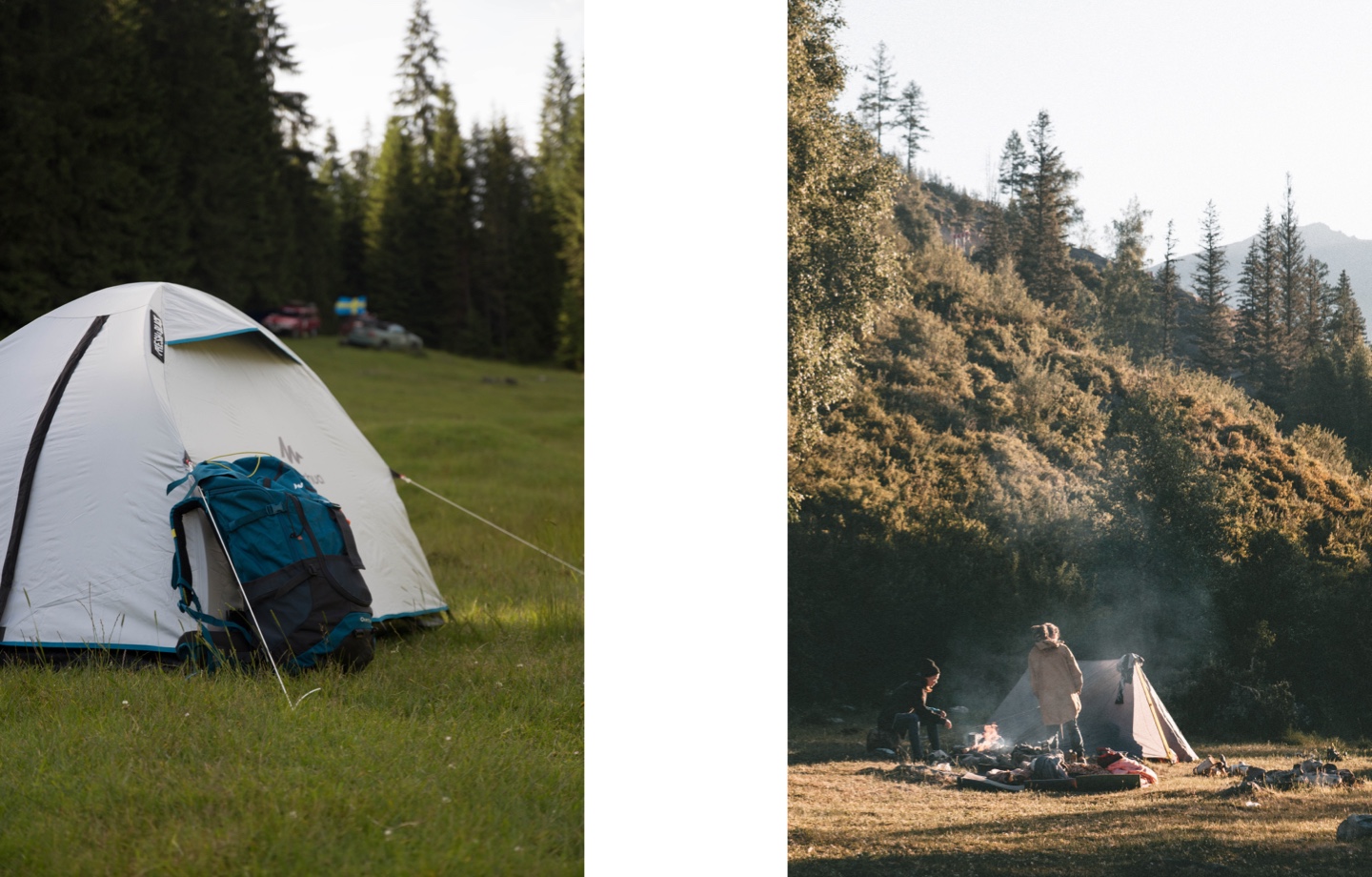
Read more: How to Camp Sustainably
Invest in a Temperature-Regulating Tent
When choosing a tent, look for lightweight, breathable materials, like nylon, polyester, and mesh panels. Design matters, too. Get one with multiple windows, vents, and an adjustable rainfly for fresh air and good ventilation.
Rosie Apple has been camping in Australia for more than 35 years and suggests buying an open tarp tent or a free-standing tent with a fly screen. With a screen, she says, “You can leave the door open, but keep mosquitos out.”
If you’re shopping for a tent that fits multiple people, Apple suggests sizing up. Typically, she and her partner find that a two-person tent is too snug for their liking, but a three-person tent comfortably accommodates two adults.
Trying not to break the bank? Search Facebook marketplace for gently used camping gear. Brandi Pharris is a budget camper who tries to buy second-hand. Once, she bought a tent from somebody who had only used it one time. She says it was “basically new, for half price.” In it, Pharris survived seven days of over 100-degree desert heat for a Burning Man festival.
She also recommends checking out deals from REI’s semi-annual garage sale, which has become the retailer’s online Re/Supply program and allows Co-op members to shop and trade used gear.
Find Level Ground and Prevent Heat Transfer
Heat tends to rise from the ground into your tent, but adding a layer underneath will create a barrier to protect the bottom from heat, moisture, and puncture holes. When setting up camp, find or make a smooth surface so mounds of dirt, rocks, and twigs won’t dig into your back. Then, prep the area by laying down a ground cloth or tent footprint before hammering in your stakes. Not only will this barrier help you stay cool, it’ll prolong the life of your tent.
Get a Great Camp Pillow
Enter Avocado’s Organic Mini Pillow. Our Organic Mini Pillow sleeps cool, light, and airy. That’s because we make the cover from premium, GOTS-certified organic cotton — one of the world’s softest, most breathable, comfortable fabrics. It’s also naturally cool and wrinkle-resistant, with a buttery finish that wicks away moisture. And the pillow is an easy-to-pack, compact size, making it ideal for camping and traveling.
Create Shade
Although placing your tent under a lush tree looks appealing because of its shade, it can be dangerous, putting you at risk of falling branches, particularly during inclement weather. Instead, create your own shade with a structure like a tarp shelter, canopy, or sunshade — and avoid the blaze of direct sunlight as best you can.
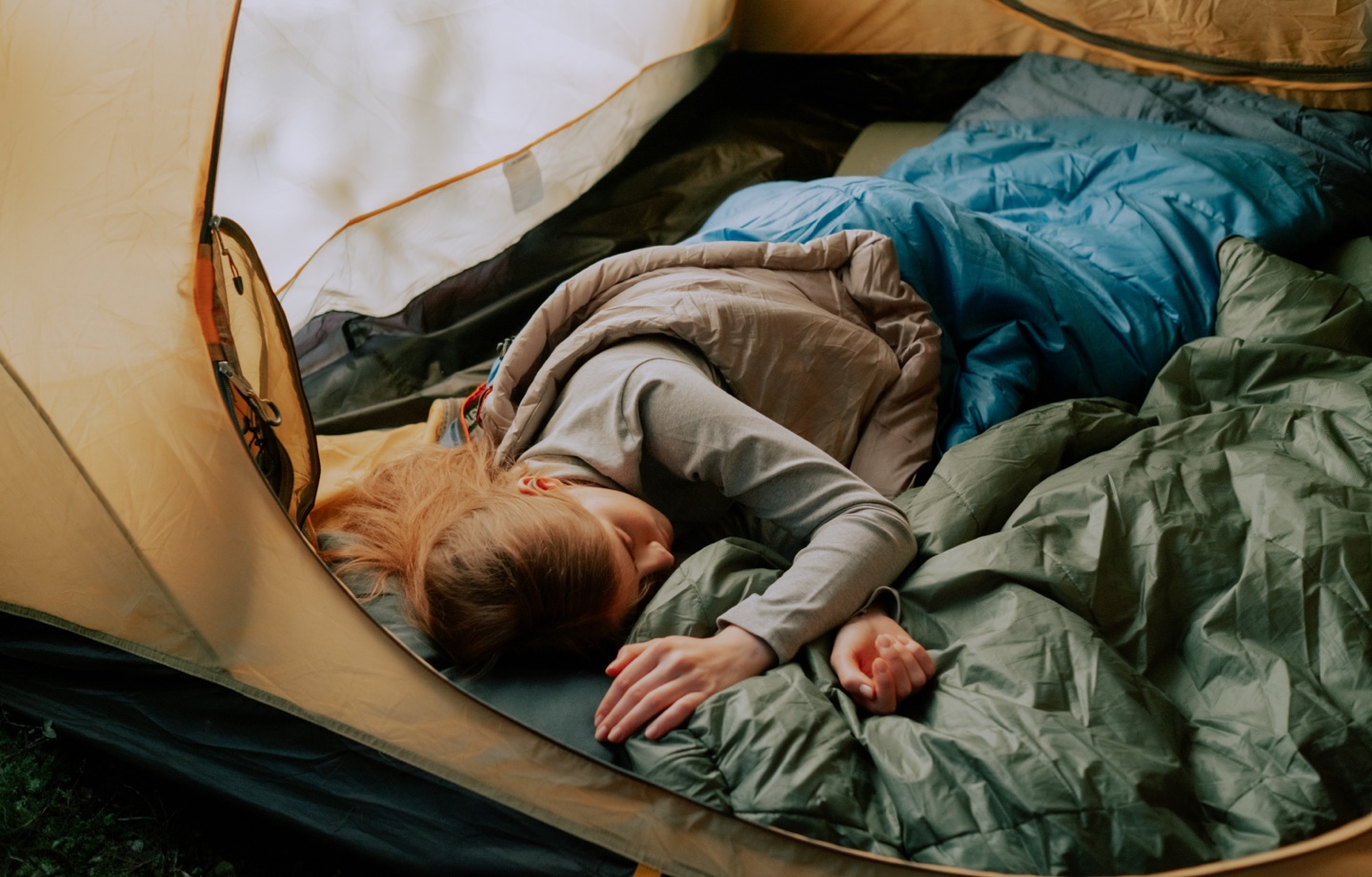
Read more: How ‘Black Folks Camp Too’ Is Making the Outdoors More Diverse
Maximize Airflow
After you secure your base layer, tent, and shade structure, open the window and door flaps of the tent so air can flow through the space. “Don’t be afraid to reorient your tent to catch the breeze,” says Apple. Face the door of your tent toward incoming winds, and if there’s no rain in the forecast, remove the rainfly for maximum ventilation.
Is it still feeling stuffy at night? Hang a small fan or station a portable air conditioner inside your tent to circulate and cool the air. Battery-operated options come in handy if your campground doesn’t have electricity.
Set Up a Comfortable Sleeping Surface
The floor can be tough to adjust to when you’re used to a supportive mattress. Roll out a comfy sleeping pad or pop open a cot for an upgrade. “Having them literally and figuratively lifts up your whole experience,” says Pharris.
And when it’s hot, the last thing you’ll want to get into is a heavy sleeping bag. Apple opts for one that is lightweight and keeps it unzipped and open at night. Meanwhile, Pharris sleeps on top of hers like a cushion and uses a thin sheet as a blanket if necessary. Even when it’s warm, having a cover nearby is helpful in case the temperature drops in the middle of the night.
Cool Down With Water
Regulating your body temperature will save you from overheating. Stay hydrated, and, as Pharris suggests, “Stay wet if you can.” If she has access to a river or lake, Pharris takes frequent dips to cool off. But if there’s not one at your campground, she suggests soaking a bandana in a cooler with melted ice water and placing it on your neck, chest, and head to cool off.
Adjust Your Sleep Routine
Being in a new environment can derail your sleep, but having good sleep hygiene, even if modified from your usual routine, can help you rest better. Slip into loose pajamas made of moisture-wicking fabrics like cotton, silk, or modal to stay cool and dry overnight.
When it’s time to wind down, consider skipping an evening beer — alcohol can disrupt your sleep quality — and read a book or meditate in nature. Aligning your body’s internal clock with the light pattern of the sun will also help you stick to a consistent sleep schedule.
Ashley Taylor, who typically avoids camping anywhere above 85 degrees, enjoys doing something active during camping trips, like swimming, hiking, or biking. It helps her sleep earlier than she would at home. “There’s something about the sun coming up and being in a tent that gets you up early.”
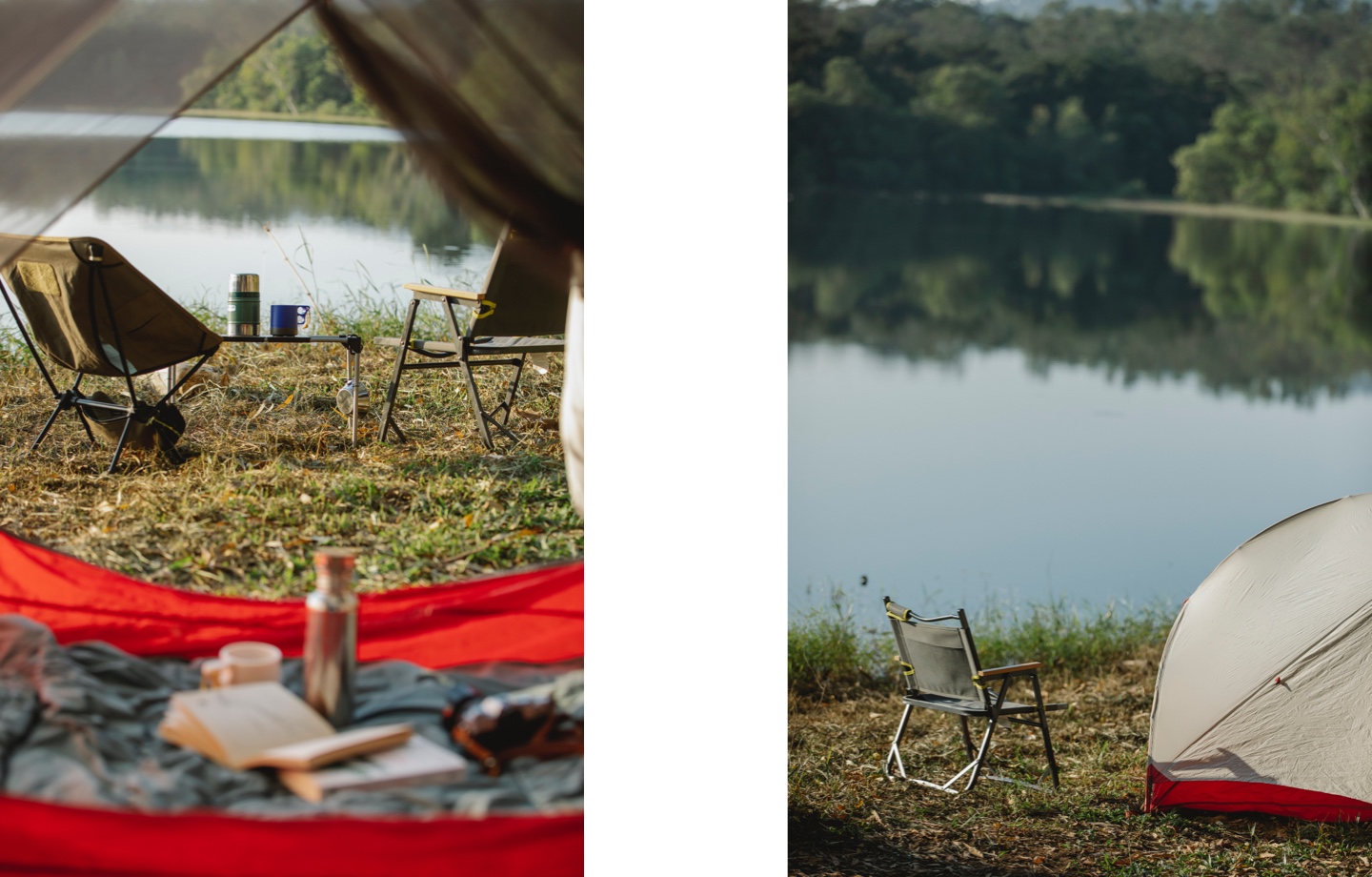
Read more: Finding Solace and Community In Nature
Have feedback on our story? Email [email protected] to let us know what you think!

Shop Pillows
The Essential Organic Pillow Collection
Gentle, breathable, non-toxic support.




